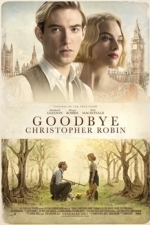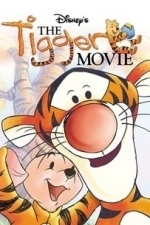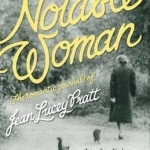Search
Search results
Lee (2222 KP) rated Goodbye Christopher Robin (2017) in Movies
Oct 2, 2017
My wife has the entire collection of Winnie the Pooh stories by A.A. Milne, featuring the illustrations by E.H. Shepherd, but they're not something I've ever actually read. I'm probably more familiar with the illustrations than the stories themselves and the fact that Christopher Robin was real, along with the stuffed toys that eventually became the characters and friends we all know and love. But I had no idea that the real Christopher Robin actually grew to hate being Christopher Robin and how much of a negative impact his fathers work had on his early years. Goodbye Christopher Robin tells us that story.
We begin with a brief scene of despair following the receipt of a telegram at the Milne home in 1941. Before we have time to fully understand what's going on, we're whisked back to World War I where A.A. Milne (Domhnall Gleeson) is fighting in the trenches. Following the war, Milne (or "Blue" to his friends) tries to live out a normal life in London, working as a writer with wife Daphne (Margot Robbie) and their young son Christopher Robin. Unfortunately though, Milne suffers from post-traumatic stress disorder, meaning that the bright lights and loud noises of London regularly take him back to the horrors of World War I and begin to effect his life and his work. Deciding to move his family to a farmhouse in Sussex, Milne hopes that the peace and quiet of the countryside will allow him to concentrate on getting back into his writing.
As he struggles to write the book he wants to write, Daphne heads back to London, promising only to return when he begins writing again. At the same time, beloved nanny Olive (Kelly Macdonald) takes time off to look after her mother, meaning that Milne must finally spend some time with Christopher Robin, getting to know his son and enjoying time together in the large woods surrounding their home. It's a slow process though, with the occasional PTSD trigger affecting the already strained father-son relationship, but they soon begin fleshing out stories, characters and habitats for what will become Winnie the Pooh and friends. When Milne invites his friend E.H. Shepherd down to start sketching the woodland and Christopher Robin at play, things really begin to take shape and it's not long before Milne has published his Winnie the Pooh stories. And they're an instant hit.
To the disappoint of A.A. Milne, much of the books attention is focused towards Christopher Robin who is immediately thrust into the limelight. Forced to endure endless photo-shoots and interviews, participating in a tea party with children who have won a competition and being constantly hounded by the press. His parents revel in the success thought, not really acknowledging the effect it's all having on their young son while they swan off to parties and holidays leaving the nanny to look after Christopher Robin and his increasingly busy schedule. Even a telephone call home from Milne to Christopher Robin to see how he is turns out to be part of a radio broadcast. He feels his life isn't his own anymore, and that Christopher Robin is just a character in a book. Even when he heads off to boarding school, he cannot escape the curse of Christopher Robin and is constantly bullied because of it.
It's thanks to the amazing cast, particularly Gleeson and newcomer Will Tilston, that all of this works so well. Building to a highly emotional ending (yeah, I cried!), Goodbye Christopher Robin is a wonderfully touching story. Emotional and hugely enjoyable.
We begin with a brief scene of despair following the receipt of a telegram at the Milne home in 1941. Before we have time to fully understand what's going on, we're whisked back to World War I where A.A. Milne (Domhnall Gleeson) is fighting in the trenches. Following the war, Milne (or "Blue" to his friends) tries to live out a normal life in London, working as a writer with wife Daphne (Margot Robbie) and their young son Christopher Robin. Unfortunately though, Milne suffers from post-traumatic stress disorder, meaning that the bright lights and loud noises of London regularly take him back to the horrors of World War I and begin to effect his life and his work. Deciding to move his family to a farmhouse in Sussex, Milne hopes that the peace and quiet of the countryside will allow him to concentrate on getting back into his writing.
As he struggles to write the book he wants to write, Daphne heads back to London, promising only to return when he begins writing again. At the same time, beloved nanny Olive (Kelly Macdonald) takes time off to look after her mother, meaning that Milne must finally spend some time with Christopher Robin, getting to know his son and enjoying time together in the large woods surrounding their home. It's a slow process though, with the occasional PTSD trigger affecting the already strained father-son relationship, but they soon begin fleshing out stories, characters and habitats for what will become Winnie the Pooh and friends. When Milne invites his friend E.H. Shepherd down to start sketching the woodland and Christopher Robin at play, things really begin to take shape and it's not long before Milne has published his Winnie the Pooh stories. And they're an instant hit.
To the disappoint of A.A. Milne, much of the books attention is focused towards Christopher Robin who is immediately thrust into the limelight. Forced to endure endless photo-shoots and interviews, participating in a tea party with children who have won a competition and being constantly hounded by the press. His parents revel in the success thought, not really acknowledging the effect it's all having on their young son while they swan off to parties and holidays leaving the nanny to look after Christopher Robin and his increasingly busy schedule. Even a telephone call home from Milne to Christopher Robin to see how he is turns out to be part of a radio broadcast. He feels his life isn't his own anymore, and that Christopher Robin is just a character in a book. Even when he heads off to boarding school, he cannot escape the curse of Christopher Robin and is constantly bullied because of it.
It's thanks to the amazing cast, particularly Gleeson and newcomer Will Tilston, that all of this works so well. Building to a highly emotional ending (yeah, I cried!), Goodbye Christopher Robin is a wonderfully touching story. Emotional and hugely enjoyable.

A Visit to London for Thomas the Tank Engine
Book
Join Thomas the Tank Engine on a royal adventure as he attends the Queen's birthday celebrations....
Lyndsey Gollogly (2893 KP) rated The Adventures of Winnie #1 in Books
Oct 31, 2021
181 of 250
Kindle
The Adventures of Winnie ( The Adventures of Winnie book 1)
By Kelly A Walker
Once read a review will be written via Smashbomb and link posted in comments
Who knew the six animals I thought I was seeing in my dreams were real?
A bear, rabbit, pig, donkey, owl and tiger land in my backyard…No, this isn’t the beginning of a bad joke. It’s real and it’s my life. Besides the shock over seeing my animal friends I thought I had dreamed up suddenly appear, I have two bigger problems. One: they are no longer animals, well most of them aren’t. Two: they’ve brought trouble to my doorstep.
When the animals *ahem* I mean guys I've been dreaming about show up unexpectedly, I learn about a whole other world I knew nothing about. My parents have been keeping secrets from me and now that the truth is out, it's up to me to help the six guys from Hundred Acre Woods discover their own past.
Well hell I won’t see Winnie the Pooh the same again! This has to be the strangest book I’ve read this year and yet some how I ended up act enjoying it. There were a few cringe moments but I found it an interesting turn on a favourite classic. Definitely need to read the next book.
Kindle
The Adventures of Winnie ( The Adventures of Winnie book 1)
By Kelly A Walker
Once read a review will be written via Smashbomb and link posted in comments
Who knew the six animals I thought I was seeing in my dreams were real?
A bear, rabbit, pig, donkey, owl and tiger land in my backyard…No, this isn’t the beginning of a bad joke. It’s real and it’s my life. Besides the shock over seeing my animal friends I thought I had dreamed up suddenly appear, I have two bigger problems. One: they are no longer animals, well most of them aren’t. Two: they’ve brought trouble to my doorstep.
When the animals *ahem* I mean guys I've been dreaming about show up unexpectedly, I learn about a whole other world I knew nothing about. My parents have been keeping secrets from me and now that the truth is out, it's up to me to help the six guys from Hundred Acre Woods discover their own past.
Well hell I won’t see Winnie the Pooh the same again! This has to be the strangest book I’ve read this year and yet some how I ended up act enjoying it. There were a few cringe moments but I found it an interesting turn on a favourite classic. Definitely need to read the next book.
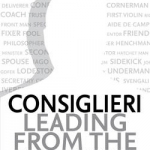
Consiglieri: Leading from the Shadows
Book
The key to success lies in getting to the top. Right? Wrong. Not everyone can be in charge but, more...
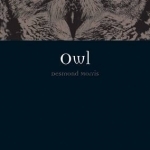
Owl
Book
The owls are not what they seem. From ancient Babylon to Edward Lear's The Owl and the Pussycat and...
Kristin (149 KP) rated 'Till the Last Petal Falls (Once Upon a Reality #1) in Books
Dec 7, 2018
Disclaimer: I received a copy from the author in exchange for an honest review.
"Never settle for a fairytale."
During my Psychology classes in college, we discussed how various characters have psychological issues: popular cartoon characters, the cast of "Winnie the Pooh," and the vast majority of the Disney Princesses. Belle is no exception, and this book explores that idea beautifully, no pun intended.
Jolee answers a Craigslist ad which sounds too good to be true, and she finds herself in the mountains of Aspen, tutoring a shut-in with some very serious issues of his own. As time goes by, she learns for and more about this man, and most of it is not good. However, she sticks by him, hoping to "fix" him with her love.
Sound like a recipe for disaster?
I used to teach a rehabilitation class for men convicted of domestic violence, and this book definitely delves into that dynamic head-first. It's a real eye-opener into the lives of those involved in those situations, from both sides of the coin as well as an outsider's perspective. Comparing it to the story of "Beauty and the Beast" really adds a whole new layer to it, as most of us either grew up with that story/movie or fell in love with it because of our kids/grandkids/etc. It's a crazy thought, but the more you think about it, the more you realize Belle suffered from Stockholm syndrome as well as battered-woman syndrome, and that HEA Disney ending is not the one generally associated with those situations.
Bravo to the author for writing this cross-examination of a beloved children's story and shedding some light on this serious issue while also maintaining a gripping novel.
5 stars
"Never settle for a fairytale."
During my Psychology classes in college, we discussed how various characters have psychological issues: popular cartoon characters, the cast of "Winnie the Pooh," and the vast majority of the Disney Princesses. Belle is no exception, and this book explores that idea beautifully, no pun intended.
Jolee answers a Craigslist ad which sounds too good to be true, and she finds herself in the mountains of Aspen, tutoring a shut-in with some very serious issues of his own. As time goes by, she learns for and more about this man, and most of it is not good. However, she sticks by him, hoping to "fix" him with her love.
Sound like a recipe for disaster?
I used to teach a rehabilitation class for men convicted of domestic violence, and this book definitely delves into that dynamic head-first. It's a real eye-opener into the lives of those involved in those situations, from both sides of the coin as well as an outsider's perspective. Comparing it to the story of "Beauty and the Beast" really adds a whole new layer to it, as most of us either grew up with that story/movie or fell in love with it because of our kids/grandkids/etc. It's a crazy thought, but the more you think about it, the more you realize Belle suffered from Stockholm syndrome as well as battered-woman syndrome, and that HEA Disney ending is not the one generally associated with those situations.
Bravo to the author for writing this cross-examination of a beloved children's story and shedding some light on this serious issue while also maintaining a gripping novel.
5 stars
Phillip McSween (751 KP) rated The Tigger Movie (2000) in Movies
Jan 20, 2020
Decent Movie Carried By Characters We All Know and Love
In The Tigger Movie, the bouncing tiger Tigger is on a quest to find his family. While pretty predictable overall, it’s still endearing enough to be enjoyable.
Acting: 10
The Winnie the Pooh voiceover cast is always a treat to listen to. I’ve always loved that they really embody the personalities of their characters. You can feel how timid Piglet is while Tigger’s voice gives you the feeling that he is going to bounce straight through a wall. They are all extremely original.
Beginning: 5
A bit of a slow start. It’s almost like Disney is trying to justify why Tigger needs his own movie in the first place. The movie isn’t a long one, however, and things quickly pick up not too long after the first ten minutes.
Characters: 10
Cinematography/Visuals: 10
Conflict: 2
Entertainment Value: 4
Memorability: 5
It’s a cute movie with a touching message, but nothing to write home about. It’s something I would want my kids to see, but not something I would watch on my own multiple times like Up. There are some strong moments here and there like Tigger’s montage song of his family. I also like the concept of what family really means.
Pace: 10
Plot: 9
Interesting story with enough meat to carry a movie. It is pretty linear and you can see the ending coming a mile away, but it was creative enough to hold my attention. I rather enjoyed the small adventure.
Resolution: 10
Overall: 75
The Tigger Movie is decent overall with fun familiar characters and an endearing story. It’s not the best of the Disney bunch, but I would say it’s worth a watch. It’s little gems like these that make Disney+ all the more worth it.
Acting: 10
The Winnie the Pooh voiceover cast is always a treat to listen to. I’ve always loved that they really embody the personalities of their characters. You can feel how timid Piglet is while Tigger’s voice gives you the feeling that he is going to bounce straight through a wall. They are all extremely original.
Beginning: 5
A bit of a slow start. It’s almost like Disney is trying to justify why Tigger needs his own movie in the first place. The movie isn’t a long one, however, and things quickly pick up not too long after the first ten minutes.
Characters: 10
Cinematography/Visuals: 10
Conflict: 2
Entertainment Value: 4
Memorability: 5
It’s a cute movie with a touching message, but nothing to write home about. It’s something I would want my kids to see, but not something I would watch on my own multiple times like Up. There are some strong moments here and there like Tigger’s montage song of his family. I also like the concept of what family really means.
Pace: 10
Plot: 9
Interesting story with enough meat to carry a movie. It is pretty linear and you can see the ending coming a mile away, but it was creative enough to hold my attention. I rather enjoyed the small adventure.
Resolution: 10
Overall: 75
The Tigger Movie is decent overall with fun familiar characters and an endearing story. It’s not the best of the Disney bunch, but I would say it’s worth a watch. It’s little gems like these that make Disney+ all the more worth it.
Hazel (1853 KP) rated A Notable Woman: The Romantic Journals of Jean Lucey Pratt in Books
May 25, 2017
Looooong
I received this book for free through Goodreads First Reads.
Whilst researching a previous book, Simon Garfield came across the diaries of Jean Lucey Pratt amongst journals collected during the Second World War for Mass Observation. Intrigued by her observations and character, Garfield became determined to learn more about her. After eventually receiving permission from Jean’s niece, he was able to read all forty-five of her diaries, edit them, and produce this huge manuscript for publication: A Notable Woman.
Jean began writing her journals in the April of 1925 at the young age of fifteen. Although she did not write everyday, she continued putting down her thoughts and experiences up until her death in 1986. Jean Lucey Pratt was not a celebrity, although she did write an, unfortunately, unsuccessful book; nor did she achieve anything spectacular during her lifetime. What makes her diaries worth publishing is the fact that she was “ordinary,” a woman who wrote not to impress other people, but to honestly express her emotions and opinions.
For the majority of her life Jean lived on her own in Burnham Beeches, Buckinghamshire, where she yearned for a husband. Her dreams of finding the perfect man yet only attracting a handful of lovers is both amusing and saddening. The most interesting part of her written records, however, has got to be the experiences of war. Unlike other diarist such as Anne Frank, who feared for their lives, or those that experienced the fighting up front, Jean provides the perspective of the average British citizen. She comments on the rationing, the blackout curtains as well as the political propaganda, providing her own opinions, which often changed as the war progressed. Jean amuses the reader by revealing she often slept through an air raid, only waking up at the sound of the All Clear.
The war ends midway through the book, thus delivering accounts of the latter half of her life, from career to ill health, incorporating in family events and, of course, her enormous horde of cats. Although a rather introverted, lonely individual, Jean’s relationship and love for her brother is often heartwarming. Separated by oceans and only seeing him every so many years, it is clear that the siblings are strongly supportive of each other. Jean often refers to her brother as Pooh (as in Winnie the Pooh), to which he responds by calling her Piglet.
Initially Jean did not intend to let anyone read her diaries but later began to imagine how other people would react to what she had written. She toyed with the idea of posthumous publication, but presumed only family and friends would read them – how wrong she was! Regardless of whether her diaries were to be viewed by outsiders or not, Jean usually referred to people by their initials. Whether she did this for a particular reason or merely to save time when writing remains debatable, however it does cause a bit of confusion when reading. Helpfully the editor, Garfield, has provided a character list that can be referred back to as needed.
Simon Garfield has done a magnificent job of compiling the diary entries together to produce an interesting, moving and occasionally amusing story about life during the 1900s. He has painstakingly sorted through handwritten entries, deciding what bits to omit and conducting further research in order to explain in footnotes the sections or references that would not make sense if left alone. Garfield has made the majority of Jean’s journals flow like a novel, only becoming erratic towards the end of her life when she would only write once every few months.
A Notable Woman gives a fantastic insight into the lives of ordinary people during an era of hardship and change. Readers are more likely to read an accurate description of the war and subsequent years in this book than in any emotionally detached textbook or biased account. Without a doubt this book is worth a read, although do not expect to be able to rush through it as some may do with a work of fiction. Garfield if highly praised for his efforts, and one hopes that Jean would be proud to finally have a writing success.
Whilst researching a previous book, Simon Garfield came across the diaries of Jean Lucey Pratt amongst journals collected during the Second World War for Mass Observation. Intrigued by her observations and character, Garfield became determined to learn more about her. After eventually receiving permission from Jean’s niece, he was able to read all forty-five of her diaries, edit them, and produce this huge manuscript for publication: A Notable Woman.
Jean began writing her journals in the April of 1925 at the young age of fifteen. Although she did not write everyday, she continued putting down her thoughts and experiences up until her death in 1986. Jean Lucey Pratt was not a celebrity, although she did write an, unfortunately, unsuccessful book; nor did she achieve anything spectacular during her lifetime. What makes her diaries worth publishing is the fact that she was “ordinary,” a woman who wrote not to impress other people, but to honestly express her emotions and opinions.
For the majority of her life Jean lived on her own in Burnham Beeches, Buckinghamshire, where she yearned for a husband. Her dreams of finding the perfect man yet only attracting a handful of lovers is both amusing and saddening. The most interesting part of her written records, however, has got to be the experiences of war. Unlike other diarist such as Anne Frank, who feared for their lives, or those that experienced the fighting up front, Jean provides the perspective of the average British citizen. She comments on the rationing, the blackout curtains as well as the political propaganda, providing her own opinions, which often changed as the war progressed. Jean amuses the reader by revealing she often slept through an air raid, only waking up at the sound of the All Clear.
The war ends midway through the book, thus delivering accounts of the latter half of her life, from career to ill health, incorporating in family events and, of course, her enormous horde of cats. Although a rather introverted, lonely individual, Jean’s relationship and love for her brother is often heartwarming. Separated by oceans and only seeing him every so many years, it is clear that the siblings are strongly supportive of each other. Jean often refers to her brother as Pooh (as in Winnie the Pooh), to which he responds by calling her Piglet.
Initially Jean did not intend to let anyone read her diaries but later began to imagine how other people would react to what she had written. She toyed with the idea of posthumous publication, but presumed only family and friends would read them – how wrong she was! Regardless of whether her diaries were to be viewed by outsiders or not, Jean usually referred to people by their initials. Whether she did this for a particular reason or merely to save time when writing remains debatable, however it does cause a bit of confusion when reading. Helpfully the editor, Garfield, has provided a character list that can be referred back to as needed.
Simon Garfield has done a magnificent job of compiling the diary entries together to produce an interesting, moving and occasionally amusing story about life during the 1900s. He has painstakingly sorted through handwritten entries, deciding what bits to omit and conducting further research in order to explain in footnotes the sections or references that would not make sense if left alone. Garfield has made the majority of Jean’s journals flow like a novel, only becoming erratic towards the end of her life when she would only write once every few months.
A Notable Woman gives a fantastic insight into the lives of ordinary people during an era of hardship and change. Readers are more likely to read an accurate description of the war and subsequent years in this book than in any emotionally detached textbook or biased account. Without a doubt this book is worth a read, although do not expect to be able to rush through it as some may do with a work of fiction. Garfield if highly praised for his efforts, and one hopes that Jean would be proud to finally have a writing success.
Hazel (1853 KP) rated A Notable Woman: The Romantic Journals of Jean Lucey Pratt in Books
Dec 7, 2018
<i>I received this book for free through Goodreads First Reads.</i>
Whilst researching a previous book, Simon Garfield came across the diaries of Jean Lucey Pratt amongst journals collected during the Second World War for Mass Observation. Intrigued by her observations and character, Garfield became determined to learn more about her. After eventually receiving permission from Jean’s niece, he was able to read all forty-five of her diaries, edit them, and produce this huge manuscript for publication: <i>A Notable Woman</i>.
Jean began writing her journals in the April of 1925 at the young age of fifteen. Although she did not write everyday, she continued putting down her thoughts and experiences up until her death in 1986. Jean Lucey Pratt was not a celebrity, although she did write an, unfortunately, unsuccessful book; nor did she achieve anything spectacular during her lifetime. What makes her diaries worth publishing is the fact that she was “ordinary,” a woman who wrote not to impress other people, but to honestly express her emotions and opinions.
For the majority of her life Jean lived on her own in Burnham Beeches, Buckinghamshire, where she yearned for a husband. Her dreams of finding the perfect man yet only attracting a handful of lovers is both amusing and saddening. The most interesting part of her written records, however, has got to be the experiences of war. Unlike other diarist such as Anne Frank, who feared for their lives, or those that experienced the fighting up front, Jean provides the perspective of the average British citizen. She comments on the rationing, the blackout curtains as well as the political propaganda, providing her own opinions, which often changed as the war progressed. Jean amuses the reader by revealing she often slept through an air raid, only waking up at the sound of the All Clear.
The war ends midway through the book, thus delivering accounts of the latter half of her life, from career to ill health, incorporating in family events and, of course, her enormous horde of cats. Although a rather introverted, lonely individual, Jean’s relationship and love for her brother is often heartwarming. Separated by oceans and only seeing him every so many years, it is clear that the siblings are strongly supportive of each other. Jean often refers to her brother as Pooh (as in <i>Winnie the Pooh</i>), to which he responds by calling her Piglet.
Initially Jean did not intend to let anyone read her diaries but later began to imagine how other people would react to what she had written. She toyed with the idea of posthumous publication, but presumed only family and friends would read them – how wrong she was! Regardless of whether her diaries were to be viewed by outsiders or not, Jean usually referred to people by their initials. Whether she did this for a particular reason or merely to save time when writing remains debatable, however it does cause a bit of confusion when reading. Helpfully the editor, Garfield, has provided a character list that can be referred back to as needed.
Simon Garfield has done a magnificent job of compiling the diary entries together to produce an interesting, moving and occasionally amusing story about life during the 1900s. He has painstakingly sorted through handwritten entries, deciding what bits to omit and conducting further research in order to explain in footnotes the sections or references that would not make sense if left alone. Garfield has made the majority of Jean’s journals flow like a novel, only becoming erratic towards the end of her life when she would only write once every few months.
<i>A Notable Woman</i> gives a fantastic insight into the lives of ordinary people during an era of hardship and change. Readers are more likely to read an accurate description of the war and subsequent years in this book than in any emotionally detached textbook or biased account. Without a doubt this book is worth a read, although do not expect to be able to rush through it as some may do with a work of fiction. Garfield if highly praised for his efforts, and one hopes that Jean would be proud to finally have a writing success.
Whilst researching a previous book, Simon Garfield came across the diaries of Jean Lucey Pratt amongst journals collected during the Second World War for Mass Observation. Intrigued by her observations and character, Garfield became determined to learn more about her. After eventually receiving permission from Jean’s niece, he was able to read all forty-five of her diaries, edit them, and produce this huge manuscript for publication: <i>A Notable Woman</i>.
Jean began writing her journals in the April of 1925 at the young age of fifteen. Although she did not write everyday, she continued putting down her thoughts and experiences up until her death in 1986. Jean Lucey Pratt was not a celebrity, although she did write an, unfortunately, unsuccessful book; nor did she achieve anything spectacular during her lifetime. What makes her diaries worth publishing is the fact that she was “ordinary,” a woman who wrote not to impress other people, but to honestly express her emotions and opinions.
For the majority of her life Jean lived on her own in Burnham Beeches, Buckinghamshire, where she yearned for a husband. Her dreams of finding the perfect man yet only attracting a handful of lovers is both amusing and saddening. The most interesting part of her written records, however, has got to be the experiences of war. Unlike other diarist such as Anne Frank, who feared for their lives, or those that experienced the fighting up front, Jean provides the perspective of the average British citizen. She comments on the rationing, the blackout curtains as well as the political propaganda, providing her own opinions, which often changed as the war progressed. Jean amuses the reader by revealing she often slept through an air raid, only waking up at the sound of the All Clear.
The war ends midway through the book, thus delivering accounts of the latter half of her life, from career to ill health, incorporating in family events and, of course, her enormous horde of cats. Although a rather introverted, lonely individual, Jean’s relationship and love for her brother is often heartwarming. Separated by oceans and only seeing him every so many years, it is clear that the siblings are strongly supportive of each other. Jean often refers to her brother as Pooh (as in <i>Winnie the Pooh</i>), to which he responds by calling her Piglet.
Initially Jean did not intend to let anyone read her diaries but later began to imagine how other people would react to what she had written. She toyed with the idea of posthumous publication, but presumed only family and friends would read them – how wrong she was! Regardless of whether her diaries were to be viewed by outsiders or not, Jean usually referred to people by their initials. Whether she did this for a particular reason or merely to save time when writing remains debatable, however it does cause a bit of confusion when reading. Helpfully the editor, Garfield, has provided a character list that can be referred back to as needed.
Simon Garfield has done a magnificent job of compiling the diary entries together to produce an interesting, moving and occasionally amusing story about life during the 1900s. He has painstakingly sorted through handwritten entries, deciding what bits to omit and conducting further research in order to explain in footnotes the sections or references that would not make sense if left alone. Garfield has made the majority of Jean’s journals flow like a novel, only becoming erratic towards the end of her life when she would only write once every few months.
<i>A Notable Woman</i> gives a fantastic insight into the lives of ordinary people during an era of hardship and change. Readers are more likely to read an accurate description of the war and subsequent years in this book than in any emotionally detached textbook or biased account. Without a doubt this book is worth a read, although do not expect to be able to rush through it as some may do with a work of fiction. Garfield if highly praised for his efforts, and one hopes that Jean would be proud to finally have a writing success.
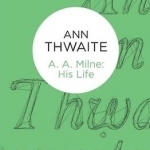
A A. Milne: His Life
Book
A.A. Milne is one of the most successful English writers ever. His heart-warming...
